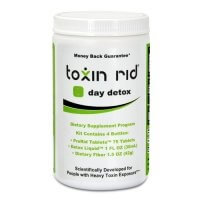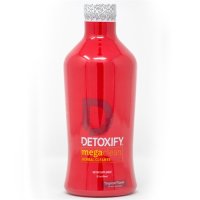Drug tests are a crucial part of many job screening processes, but sometimes, they are not always accurate. Therefore, a significant question that comes to mind is what medications can cause a false positive result? This question is essential because several drugs interact within the body, which can interfere with the outcome of a test.
Even though many other causes of a false positive test, such as mouthwash and many others, medications are on the top of the list. Fortunately, false positive drug tests are not as common as you think – only 5%-10% of drug tests are false positives.
Nevertheless, they can lead to different consequences such as the wrong diagnosis or losing employment. Hence, it’s crucial for you to ensure proper precautions are taken during a drug test.
 |
Our #1 Choice
Toxin Rid |
|
|
 |
Mega Clean + PreCleanse Pills |
|
What Does A False Positive Mean?
A false positive result means detecting a substance that isn’t present in your body. Sometimes, you might be required to repeat the test after a few hours or days before there can be an accurate result. You can get a false positive outcome regardless of the sample – blood, saliva, or urinalysis drug test.
False positive tests are not standard because screening techniques have improved in the last couple of years. But they still happen every once in a while. So before delving into how to dispute a false positive drug test, you must understand what causes them.
What Medications Can Cause a False Positive Result?
As indicated earlier, different medications can interfere with your blood screen. Here are a few you should consider including in your medical history before a drug test:
Analgesics / NSAIDs
Non-steroidal Anti-Inflammatory Drugs may be harmless but can interfere with your drug test. For example, Ibuprofen and Naproxen are the most common analgesics that give a positive urine test for THC and barbiturates. Also, Ibuprofen can lead to a false positive PCP result.
Wondering how long does Ibuprofen stay in your system? It takes 24 hours for Ibuprofen to leave your system. For an accurate result, only get a urine drug test after this duration.
Antidepressants
There are so many antidepressants that can cause a false positive drug test:
Bupropion such as Wellbutrin SR and Wellbutrin XL can produce false positive results for methamphetamine or amphetamine.
Trazodone can also interfere with the testing for amphetamine or methamphetamine. But this drug is barely used for depression these days.
Sertraline is a selective serotonin reuptake inhibitor (SSRI). Zoloft can cause a false positive result for benzodiazepines and hallucinogen LSD.
Antibiotics
Although antibiotics barely interfere with drug tests, there are a few you should be aware of; Rifampin which is used for treating tuberculosis can test positive for opiates. And just like Ibuprofen, the test can be positive after 18 hours of a single dose.
Antihistamines
Over-the-counter sleep and allergy medications such as Advil and Benadryl can present as methadone in a drug screen because of diphenhydramine. Also, these kind of drugs may show up as PCP.
Central Nervous System (CNS) Stimulants
ADHD medications such as Adderall and Ritalin (methylphenidate) may cause a false positive result when testing for methamphetamines and amphetamines.
Cough Suppressants
Dextromethorphan, one of the most used cough suppressants, can lead to a false positive result for PCP and opiates. Dextromethorphan is a derivative of codeine, and your body usually metabolizes codeine to morphine which can also be found during testing.
Decongestants
Sinus and nasal decongestants such as pseudoephedrine can cause a false positive result when testing for methamphetamine or amphetamine.
Sleep Aides
Unisom, a familiar OTC sleeping aide, has been found to cause positive results for PCP, barbiturates, and methadone.
Proton Pump Inhibitors
Medications such as pantoprazole which is used for alleviating symptoms of Gastro-oesophageal Reflux Disease (GORD) and heartburn burn, can also cause a false positive result for THC with urine samples.
Novocaine or Lidocaine
Novocaine or lidocaine is given chiefly at the dentist, which can lead to a false positive result for cocaine.
HIV Medication
Efavirenz, popularly called Sustiva, is easily one of the many antiretroviral drugs for HIV infections, and it can test positive for THC.
Common substances
Aside from the medications listed above, other common substances also can produce false positive results:
Vitamin B Supplements
Vitamin B supplements are great for boosting your immune system and improving cognitive development, but they can cause a false positive result for THC. For example, riboflavin (Vitamin B2) contains hemp seed oil, which has trace amounts of THC and shows up in swab drug tests.
Tonic water
Tonic water might be perfect for a detox, but excess amounts might not be a great idea if you intend to pass a drug test. According to a study, it’s confirmed that excessive tonic water might lead to a false positive result for opiates.
Secondhand Marijuana Smoke
If you’ve ever asked, can you fail a drug test from second hand smoke at a concert? The simple answer is yes, but it depends on your proximity. If you’re exposed to heavy amounts of THC in the atmosphere, you might test positive for it. But, modern drug tests are less likely to show a positive result.
And if you want to know more about how long does weed stay in your system, you can read it here: https://www.mercurynews.com/2022/12/01/thc-detox-guide-and-best-ways-to-get-weed-out-of-system/.
Poppy Seeds
People ask, will poppy seeds make you fail a drug test? Here’s the answer: poppy seeds naturally have trace amounts of codeine and morphine which will likely show up after you consume them. Hence, eating a bagel less than 24 hours before a mouth swab will likely cause a false positive opiate result.
Mouthwash
A significant component of mouthwash is ethanol- a form of alcohol that unfortunately can be traced in your blood, urine, and breath. Hence, in random drug tests, you can be arrested for overdrinking.
Weight Loss Pills
Weight loss medication such as Phentermine helps reduce hunger, which leads to burning fat. However, Phentermine leads to a false positive result because it’s chemically similar to amphetamines. As a result, it can be flagged as an addictive drug without a doctor’s prescription.
CBD Oil
CBD oil is legal and has several health benefits- anti-inflammatory purposes. However, it is part of the list when considering what can cause a false positive drug test for THC. Even though there are only trace amounts of THC in CBD oil, it could show up in a urine drug test.
ADHD Medications
Ritalin is one of the most popular ADHD medications, and it can last in your system for as long as 72 hours. However, if you get a urine test within this period, Ritalin can produce a false positive result for methamphetamine, LSD, and amphetamine.
Pain or Anti-Inflammatory Medication
Like NSAIDs, pain and anti-inflammatory medications such as Ibuprofen and Naproxen have been found to cause false positive results for THC, Barbiturates, and PCP.
Antipsychotic Drugs
Thorazine (Chlorpromazine) usually lasts 24 hours in the body and may cause false positives for amphetamine. Another popular antipsychotic, Quetiapine, may cause a false positive result for methadone.
Baby Soap
A research shows that several baby soaps such as Aveeno, Johnson & Johnson, and CVS can sometimes cause false positive results for THC. As small as 0.1 milliliters caused the THC urine test to come up as positive.
Consequences of False-Positives
False-positive drug tests can negatively impact the careers and lives of people. Whether it’s losing a job opportunity or getting to jail, there’s no beneficial outcome of false positive results. Below are some consequences of false positive results:
- Unemployment or loss of employment
- Serving a jail term
- Reduced privileges in a probation
- A wrong diagnosis may lead to inappropriate prescription
- Zero participation in competitive sports
With many workplaces increasing random drug tests for new employees, it’s essential for more reliable screening processes. The good news is that there are different ways to dispute a false positive result.
How To Dispute a False-Positive Drug Test Result
The best way to dispute a false-positive drug test result is to ask for another test to be done. Getting a false-positive result can be disheartening because of the consequences involved. However, many professionals understand that it is a norm, so you don’t need to be frazzled.
If you know you have got a false-positive result, follow the next steps:
- Be Open To The Test Provider
Since different foods and medications can interfere with the final result of your drug test, you need to notify the medical personnel. If you are on some specific medications, present a doctor’s prescription to back up your claim. A prescription will also help prepare other test providers for subsequent testing.
- Consider Your Diet in The Last 24 Hours
If you’re not on any prescription medication and are sure you have been given a false result, it’s time for some self-reflection. First, think about what you have consumed in the last 24 hours- many substances remain in the body for at least 24 hours. Then, please list all the foods and present them to your test provider.
Many medical providers can tell you if the food on your list might have interfered with your results. This process will give you a chance to pass your drug test.
- Ask For Another Test
Finally, asking for a retest is the easiest way to ascertain if your drug test result is accurate or not. Of course, it always helps to present a doctor’s note stating your need for prescription medication. Plus, many employers are aware of the possibility of false positives. Hence, they are always willing to grant another screening.
Conclusion
Drug testing is mandatory, but with the possibility of false positives, the process isn’t a hundred percent accurate. It helps to be aware of the different medications, substances, and foods that can interfere with the final results. And if you happen to get a false result, follow the steps above to dispute it immediately to prevent any consequences.